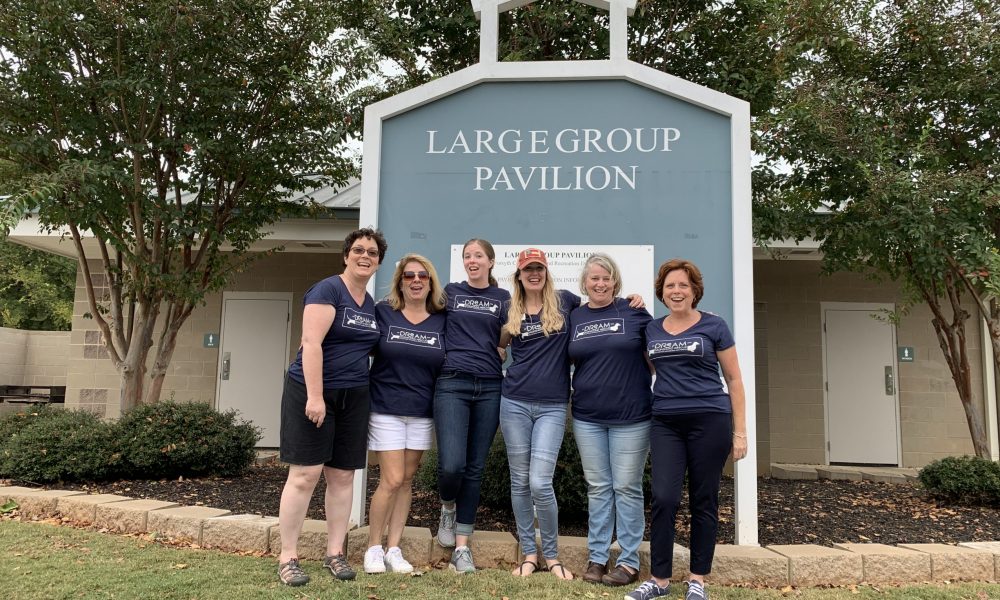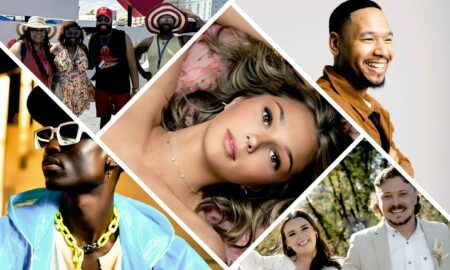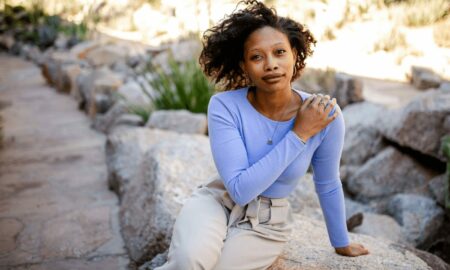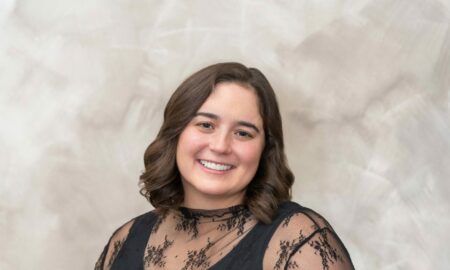

Today we’d like to introduce you to Ivy Carruth from Atlanta based non-profit DREAM Dachshund Rescue.
Ivy, let’s start with your story. We’d love to hear how you got started and how the journey has been so far.
DREAM of Georgia, Inc. (Dachshund Rescue Education Awareness & Mentoring) was created in 2005 – in some ways, it feels like yesterday, and in others, it seems like a million years ago. We approached its formation as we would a business, which it is really, and we still treat it with the respect and attention a business requires to run smoothly and successfully. The founders had previously met as volunteers within another dachshund rescue group that was primarily based in Florida. We increasingly saw a huge need and opportunity to contribute toward rescue in our own state of Georgia and to own that process moving forward – so that’s what we decided to do. We continued to focus on a breed-specific model of dachshunds and dachshund mixes, though in a pinch, we’ve been known to take in the ‘close-relatives’ and packmates of dachshunds who are surrendered to us. We’ve had everything from prissy poodles to sweet Staffies, all of whom found forever homes. We can’t turn our backs on family.
As a newly formed board, we chose our name, devised our mission and vision statement, and looked at our own values and how they would be reflected in our work. We started out very deliberately and planned on how we intended to go forward – It’s changed very little since it was put onto paper. There is not a small amount of paperwork involved with benevolence, so we hired an attorney who specialized in this area to make sure we had our i’s dotted and t’s crossed. We applied for our license to operate from the Georgia Department of Agriculture (they oversee the Animal Protection Division) got our 501(c)3 which insured legitimacy and transparency in all matters of tax and which allowed more venues for financial support, as we receive no funding at all from the government. We fundraise for every cent we spend with more than 90% of it going toward vetting and medical care for incoming dogs. We are, of course, not for profit.
The most important thing we decided that weekend was that we would start small. We would not overextend ourselves financially and become a burden to our rescue partners. As board members, we each contributed a self-imposed financial ‘starter fee’ to the organization, so that we could begin. Almost all of the dogs we take in require vetting, from the ordinary (rabies vaccination) to the more complicated (back surgery and physical therapy, behavioral training, extreme dentals, or eye removal.) We knew that if we went too big too fast we’d not only be ineffective in making a deep difference in a small geographical area, and as a model for others but that we wouldn’t last long in rescue – in the long run, the dogs would suffer. This means that we do have to say ‘no’ to dogs coming in if we don’t have the space or the funds to care for them. We pay our bills as we go, and we don’t operate on credit. We take in dogs from a variety of sources including cruelty or hoarding cases, local animal controls, owner surrenders, breeder dumps or good Samaritans. We have a waiting list of dogs to come in, and the truth is we can’t save every single one, though we wish we could. It doesn’t stop us from trying.
Has it been a smooth road?
Compassion fatigue is real! We make hard decisions every day. We cry. Saying ‘no’ to a dog that needs intake is wrenching, and that never changes. We do our own fundraising, and money is a key to our success, vets don’t work for free (nor should they.) Honestly, the things that make it a challenge are the sweetest to overcome… changing people’s minds about rescue animals and advocating for them is wonderful. Raising funds by putting on our Howl-O-Weenie event and the other events we do throughout the year is back-breaking but we live for it.
Helping families who need to surrender a dog under sad circumstances is bittersweet, and pulling in the ones who’ve been let down by humans is something that brings out the mother hen in all of us. That being said, we are a small group by design, with five current board members who run the daily goings-on. We balance that with our own families, our jobs, our lives and our responsibilities outside of rescue. Sometimes, it’s difficult to keep a balance. We always need more help, especially on the board level, but it’s a big job and it takes a special type of person to do it well. It can also be difficult for people to wait for a response after they complete an adoption application. They’re excited and they want a decision ‘rightthisveryminute.’ We’ve gotten a few snarky emails (they’re very much the exception), but we aren’t interested in being the fastest, we’re interested in being the most successful – because that’s the metric we judge ourselves on; happy endings for the dogs.
Please tell us about DREAM Dachshund Rescue.
Our foster dogs live in private homes with families – we don’t have a physical shelter. Some foster homes prefer the oldies, some prefer the gruff, cranky sassy pants’, and some want the easy keepers. They foster out of the goodness of their hearts and their desire to make a direct difference, showing these dogs consistency and kindness. For some, it’s the first time they’ve known a soft bed or gentle voices. We get to know our dogs really well and we’re never anything less than honest with potential adopters- the good, the bad, and the sometimes ugly. We want this to be a mutually positive experience.
We’ve built trusting relationships with the community and many of our adopters are repeat ‘customers’ coming back, again and again, to add more longdog love to their life- we become family. What we know is that there is a home for EVERY dog, not just the perfect ones. In fact, we’ve directly facilitated the rehoming of around 1500 of them via our adoption program and contributed to many others. It adds up over the years. We always have some long-timers around, the ones that get passed up because they aren’t photogenic or perhaps they’re senior citizens or special, but we hang on to that dog as long as he needs us. We don’t discriminate on how old a dog is, how sick they are, how ‘in need’ they are when we intake, in fact, we had a tiny little 17-year-old ruthless toothless that get adopted last year. We have dogs with IVDD, dogs with bite histories, blind and deaf dogs- it runs the gamut. There is a perception that rescue dogs are defective or in some way damaged or broken, but we get plenty of ‘normal’ dogs that come through also. Rescue dogs have a way of thanking you for choosing them, and their gratitude is palpable. Once you rescue a dog, you’ll do it for life.
As a group, we work to further our mission with each intake and adoption we do. We also strive to educate the public and to document our processes for replicability. Saving dogs from within a large metro area requires the combined efforts of so many, and we each contribute our talents and interests. Our volunteers are our village and we call on them for everything from picking up a dog from a shelter and transporting them to our vet’s to fostering a dog in their home to liaising with a potential adopter for information. We have not one paid employee, every one of us does it for the love of the dogs.
Our Howl-O-Weenie event is legendary and is the largest dachshund festival in the Southeast. It’s our primary fundraiser, and rather like a ‘homecoming’ for our alumni and their people. We work like Trojans to put that festival on, and we enjoy every minute of seeing the delighted faces and hearing the squeals of recognition.
How do you think the industry will change over the next decade?
Atlanta is a vibrant, forward-thinking city. We love our home! Statistically, the South sees alarming numbers of companion animals that go into shelters every year, so there is no better place to start a rescue. It’s the hardest, though most rewarding thing you’ll ever do! We are in good company here with several other rescue groups, some that focus on specific breeds, size or age, and some that welcome all creatures great and small. Georgia animal euthanasia rates are among the highest in the country, and without adoptions, those numbers climb even higher. Just two counties’ animal control facilities, Fulton and Dekalb, had an intake of 1,094 animals in ONE MONTH – February 2020. (https://lifelineanimal.org/shelter-statistics)
We’d love to see more education being done on what it means to be a responsible pet owner and more protections overall for companion animals in Georgia. Nationwide, the public is embracing rescue, and according to a 2018 study done by the National Institutes of Health (https://www.ncbi.nlm.nih.gov/pmc/articles/PMC5981279/ (see fig 12) rescue is trending upward every year, with the amount number of people who adopt doubling the amount who purchase from breeders. These results are much slower to trickle down South, but we know the ground has been plowed and is fertile. We just need more people planting seeds.
Contact Info:
- Website: http://www.dreamrescue.org
- Email: helpmedream@gmail.com
- Instagram: @dreamdachshndrescuega
- Facebook: https://facebook.com/dreamdachshundrescue
- Twitter: https://twitter.com/DREAMrescue
- Other: https://greatnonprofits.org/org/dream-dachshund-rescue-atlanta-georgia









Suggest a story: VoyageATL is built on recommendations from the community; it’s how we uncover hidden gems, so if you or someone you know deserves recognition please let us know here.



















